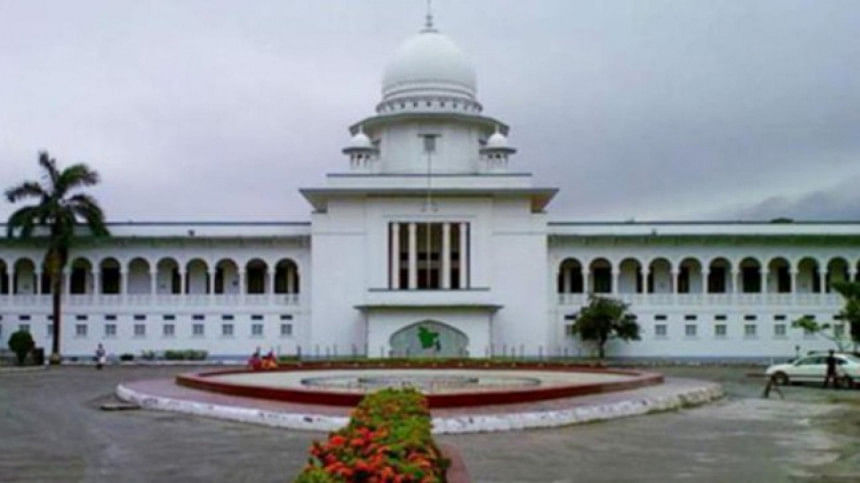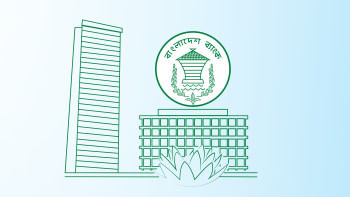Pay back loan or go to jail

The High Court yesterday warned loan defaulters that if they fail to pay back money to People's Leasing and Financial Services Ltd (PLFSL), they will be thrown into jail.
It said the loan defaulters must return the money to save the non-bank financial institution, which is facing liquidation.
The non-performing loans (NPLs) are not the money of thieves or scammers. This is the money of the country's s common people, the HC bench of Justice Muhammad Khurshid Alam Sarkar said while hearing a petition regarding the liquidation.
"You [defaulters] have taken a huge amount of money from PLFSL and have remained silent for two years. One the other hand, the depositors are moving on the street without having meals," said the bench.
The HC bench briefly heard statements of 45 of the loan defaulters who appeared before the court yesterday in line with its January 21 order.
The borrowers who have not appeared will be given another chance to provide explanation to the court by March 9. If they fail to do so, a directive will be passed to arrest them, Justice Khurshid Alam warned.
The total number of borrowers who defaulted on loans from PLFSL is 280.
Yesterday, some of the defaulters sought time from the court to return the money. A few of them said the loans were taken by their family members, who have either died or are too sick now. Besides, some said their businesses have shut down.
"You first start paying the due installments and then discuss or bargain with the liquidator on how you will pay the remaining non-performing loans. Those failing to do so will be sent to jail," the court told the defaulters.
"You will pay back the money in the lawful way. No influence from any powerful person, even any minister, will act here, as the issue is now with this court," the HC bench told Arafin Shamsul Alamin, finance director of Shamsul Alamin Real Estate, which allegedly defaulted on loans of Tk 384 crore from PLFSL.
Arafin told the court that they have long been running businesses in a fair manner, without using any influence.
He said he had earlier been paying Tk 20 lakh in instalment every month to PLFSL, but for the last two years, the lender's office has not been in operation. That is why, he could not pay the instalments, he said.
Around Tk 160 crore was sanctioned as loan for him but the PLFSL is now claiming Tk 394 core along with the interests from his organisation, he told the court.
The HC bench commented that many borrowers like Arafin run business in a fair manner and that they are not errant like Shami Huda, a former managing director of PLFSL.
The HC asked the defaulters to place their statements through swearing affidavits to it by March 9.
Justice Khurshid Alam said the court would send the affidavits to the liquidator of PLFSL to deal with the matter.
There are more than one lakh depositors of PLFSL, which is a listed company with the capital market, and more than 80 percent of them are common people. While around 1,000 borrowers, including the defaulters, have taken money from the NBFI, the HC judge said.
He said the PLFSL is still alive in the eye of the law as the institution is now under the authority of a liquidator.
There are different directorates, departments and agencies in the state which are responsible for checking irregularities in institutions like PLFSL, the judge said.
Recovering NPLs is not the duty of this court. It has many other important and urgent issues to deal with, he said.
The HC bench made the observations during the hearing on the petition filed by Bangladesh Bank in 2019 seeking permission to liquidate PLFSL.
The liquidation process began after the board of PLFSL informed the central bank in April 2019 about its inability to pay back the depositors' money despite the maturity of the deposits.
On February 23, 51 defaulters had appeared before the bench in connection with the same issue.
The court yesterday fixed March 9 for further hearing on the matter.
Justice Khurshid Alam said he would discuss virtually with the Bangladesh Bank governor, the chairmen of the Anti-Corruption Commission and the Security Exchange Commission on exploring ways to recover NPLs to save PLFSL.

 For all latest news, follow The Daily Star's Google News channel.
For all latest news, follow The Daily Star's Google News channel. 



Comments